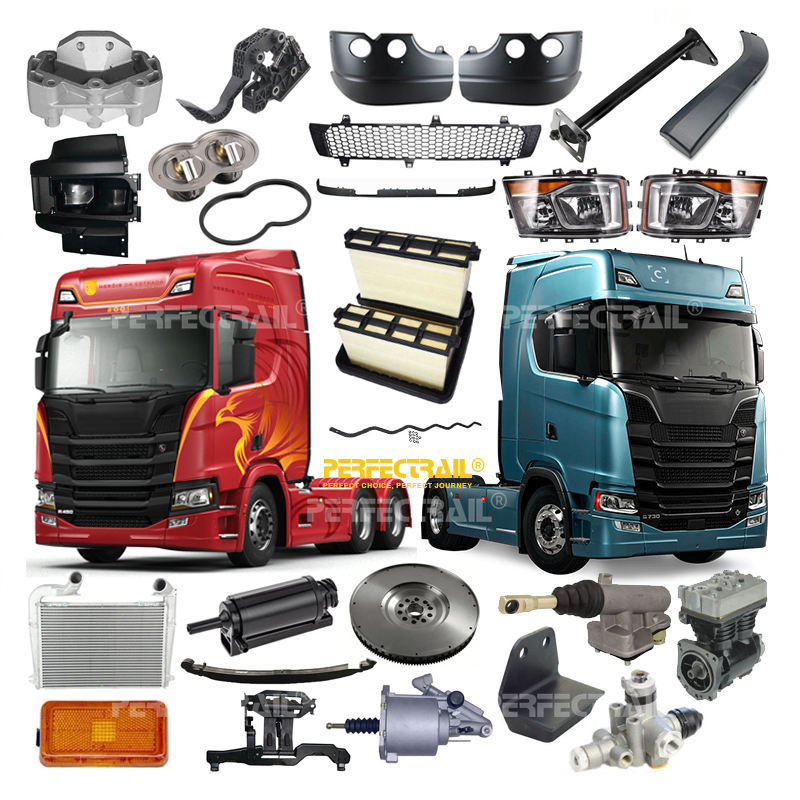When your fleet includes different vehicle models, spare part orders can read like a mixed bag: brake pads for a Scania next to a Volvo air filter, with a lone MAN headlamp still on backorder. Every truck off the road means delivery slots missed or kilometres not covered. That is why having access to aftermarket European truck parts that fit right the first time keeps schedules intact and drivers moving. The value of consistent supply is not only in restoring vehicles to service but also in maintaining customer trust when timetables are tight.
Which brands can you source parts for
Most fleets in New Zealand with European cabs feature familiar names: DAF, Iveco, MAN, Mercedes-Benz, Scania, and Volvo. Each has its quirks; a Scania cooling layout won’t match a Volvo, and MAN front suspension bushings won’t swap to a DAF. Even similar models from the same brand can have different specifications that trip up an unprepared order. When several brands share the same yard, it pays to work with a reputable aftermarket supplier who can match each VIN to the correct part number without having to go through multiple catalogues or waste time double-checking fit. For operators, that accuracy means trucks return to service faster, workshops run smoothly, and spare parts budgets are not wasted on incorrect components that sit unused on the shelf.
How to check compatibility before placing an order
In a mixed fleet, ordering European truck parts starts long before anything breaks. Keeping VINs and build plates recorded in a spreadsheet is a practical step that prevents confusion later. Relying on memory for filter sizes or belt lengths often leads to wasted hours when the wrong part arrives. A laminated quick-reference chart in the office with common wear components – air filters, brake pad types, coolant hoses, and bolt patterns – helps technicians confirm requirements instantly. This habit streamlines maintenance, prevents trucks from idling unnecessarily, and reduces workshop frustration. Many suppliers also provide online compatibility tools or catalogues, which, when paired with your own fleet records, make sourcing the right component a faster and more reliable process.
Do aftermarket truck parts hold up on long hauls
Some drivers insist they can “feel”r a difference as soon as they leave the depot, but well-manufactured parts built to OEM standards should perform seamlessly. Take a fuel injector, for example: if it delivers the correct spray pattern and flow rate, the engine will run smoothly whether the injector is OEM or aftermarket. The true test comes not in the driver’s perception but in the lack of breakdown calls mid-route. On an Auckland–Christchurch haul, reliability means everything. When quality parts are fitted, the real benefit is trucks completing their journeys without interruptions, saving both time and money. Workshops that choose parts from trusted suppliers ensure that long-haul performance is maintained without compromise.
Why sourcing European truck parts locally cuts downtime
Downtime is costly, and waiting weeks for international shipments can leave trucks running with makeshift fixes longer than they should. A cracked mirror bracket or worn suspension bushing may not stop a truck immediately, but delaying the proper repair risks compliance issues or larger mechanical failures. Local suppliers stocking a wide range of parts allow workshops to replace components the same day. This quick turnaround is critical during peak freight or seasonal harvest periods, when every vehicle counts. Local availability also gives fleet managers flexibility to schedule maintenance around driver hours, rather than pulling trucks off the road mid-shift for unexpected repairs. Having a trusted local source reduces reliance on emergency courier orders and ensures predictable ok service planning.
Cost efficiency without cutting corners
Fleet managers naturally weigh cost alongside reliability. While genuine OEM parts carry a premium, reputable aftermarket alternatives deliver equivalent performance at lower prices. The key is to select suppliers that meet strict manufacturing standards and provide warranties. Investing in low-quality imports may look like savings up front, but breakdowns, repeated replacements, and lost productivity quickly outweigh the initial discount. With the right supplier, aftermarket European truck parts balance affordability with durability, giving workshops confidence that performance will match fleet demands.
Keep your fleet moving with quality parts
Every truck in the yard benefits from having the right components available when needed. Sourcing high-quality European truck parts from local suppliers helps avoid unnecessary downtime and keeps delivery schedules on track. Fleet managers can improve efficiency by reviewing inventory, identifying high-turnover items such as filters, brake pads, and belts, and working with suppliers to keep these ready in stock. This approach reduces last-minute ordering pressure and ensures vehicles spend more time on the road, where they generate revenue. A proactive parts strategy, paired with trusted suppliers, means mixed-brand fleets across New Zealand can continue to deliver reliably, whatever the workload.


